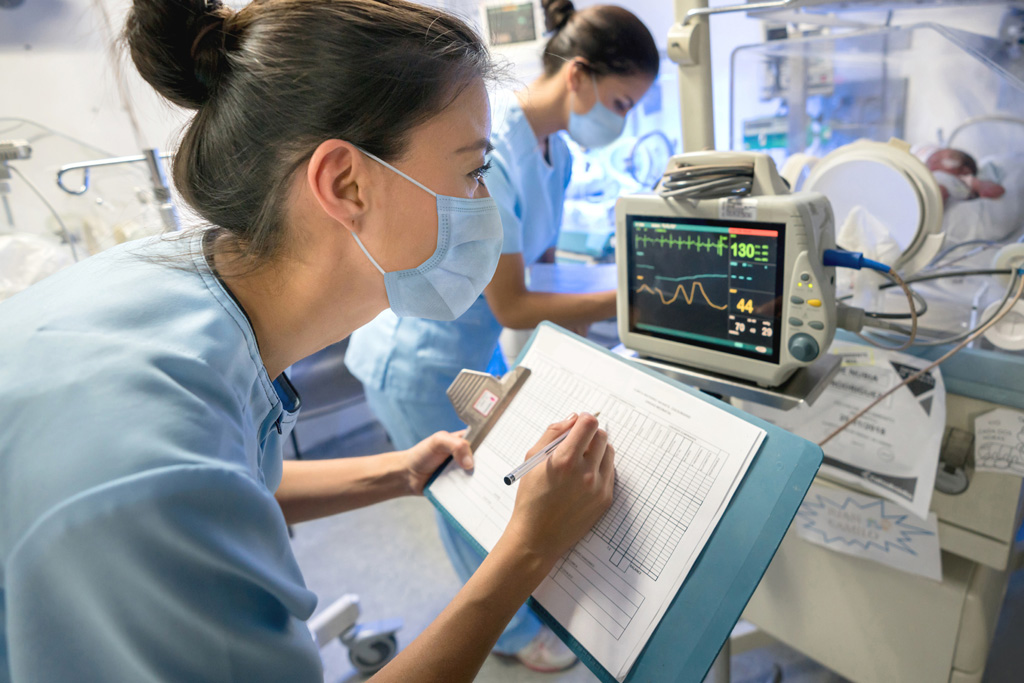3 Essential Skills for Nursing in the 21st-century

Nurses face a number of opportunities and complexities as they move the profession into the 21st century. As practical skills change, so does the mix of critical and clinical thinking, and the social and emotional intelligence required to make collaborative decisions and stay adaptable.
Here is a list of three essential 21st-century nursing capabilities:
1. Critical, Clinical and Ethical Thinking
The global pandemic challenged nurses across acute care settings to be more nimble and self-assured in their nursing process. This includes interpreting observations, making nursing diagnoses, implementing nursing interventions and evaluating the effects of those nursing interventions.
Among the essential 21st-century nursing skills will be sound critical thinking, clinical judgment and leadership, including an ability to reflect on actions taken, self-assess, receive feedback and improve one’s ability to connect theory to practice over time and handle ethical dilemmas.
New health challenges, whether pandemic or more isolated, will require nurses to team with other professionals in pursuit of rapid investigations and solutions. A key competency for future nurses and all health professionals will be to acknowledge the unknowns and to formulate strategies for how to explore them.
2. Nurse + Machine Collaboration
Nurses remain uniquely positioned to influence how technology is synthesized at the point of care. The emergence of collaborative intelligence and clinical analytics require both practical knowledge and a new mindset to welcome machines as an additional contributor to the care team.
Imagine a clinical situation where a nurse is monitoring multiple patients for non-verbal signals of rising or falling pain levels, or changes in breathing patterns.
Machine learning will help nurses and others improve clinical pathway prediction, disease progression prediction, health risk protection and predictive risk scoring. Collaborative intelligence will assist with the differential diagnosis of medical images and combine patient data with academic evidence and regulatory guidelines to help personalize treatment plans and improve treatment and outcomes.
3. Relationships + Interdependency
The next generation of nurses will be asked to work in teams with other health professions, and with specialists trained in novel ways.
Take, for example, the inaugural class of doctors who graduated this year from the Carle Illinois College of Medicine at the University of Illinois, the first of their kind to earn an M.D. degree focused at the intersection of medicine and engineering.
At times, nurses will be asked to model various forms of servant and transformational leadership as a means of everyone gaining a better understanding of the patient and circumstances. As technology assists more on the clinical side, nurses will play a larger role in research and in addressing health inequities. People-centered and integrated care will be within the reach of everyone.
Nursing at John Carroll University
John Carroll University’s Bachelor of Science in Nursing, launched in collaboration with Cleveland’s world-class medical institutions (Cleveland Clinic, University Hospitals, and the MetroHealth System), is seeking approval by the Ohio Board of Nursing in July, 2022. Recruitment of students will begin Fall 2022 for a Fall 2023 start of the BSN. New teaching and simulation facilities in the Dolan Center for Science and Technology will support a forward-looking, evidence-based approach to nursing education, a cornerstone of the John Carroll University BSN.
John Carroll is a private Jesuit university located in University Heights, Ohio, near Cleveland.
